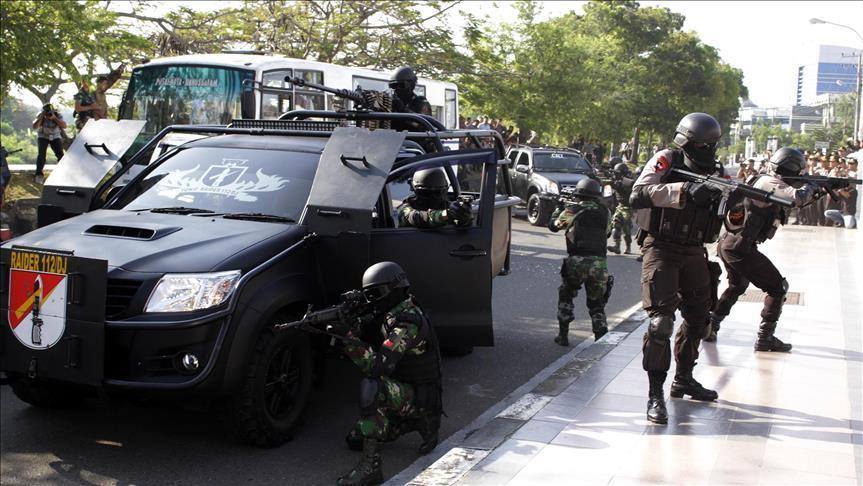Indonesia suspects ‘spy’ helping Abu Sayyaf abductions
Army chief says investigation whether Indonesian may be supplying Philippines-based militants with information on ships

By Ainur Rohmah
TUBAN, Indonesia
Indonesia’s military revealed Tuesday its suspicions that a national may be serving as a “spy” for a militant group based in the southern Philippines involved in a spate of kidnappings in the region’s piracy-ridden waters.
Army chief Gen. Gatot Nurmantyo referred to the abduction of 25 Indonesian sailors and fishermen in five separate hijackings in the Sulu and Celebes seas this year, and their subsequent captivity by the Abu Sayyaf in the southern Philippines island of Sulu.
"We're doing an investigation with police," he was quoted as saying by detik.com, underlining suspicions that an Indonesian may be leaking information about ship movements to captors.
"Logically, they [the kidnappers] can know the position of vessels, meaning there’s a party that informed it," Nurmantyo added.
Of the 25 Indonesians held by the Abu Sayyaf, 18 have been released after negations between the militants and Indonesian and Philippine authorities that were facilitated by the Moro National Liberation Front (MNLF) rebel group, which is engaged in a peace process with the Philippine government.
Another two escaped their captors.
On Tuesday, Indonesia’s foreign ministry confirmed that four hostages released earlier this month were repatriated Saturday and reunited with their families Monday.
The ministry's director of citizens and legal entities, Lalu Muhammad Iqbal, said in a statement, “the four citizens who have been released by the Abu Sayyaf have been handed over to their respective families.”
He added that the government “continues to conduct efforts to release five other citizens" who remain captive in Sulu.
Kidnap-for-ransom gangs frequently operate in the seas between the Philippines, Indonesia and Malaysia.
They are known to hand over their captives to the Abu Sayyaf and negotiate for a ransom that, if paid, is shared with the group.
Earlier this year, the Abu Sayyaf beheaded two Canadian hostages after million-dollar ransoms failed to be paid.
Since 1991, the group -- armed with mostly improvised explosive devices, mortars and automatic rifles -- has carried out bombings, kidnappings, assassinations and extortion in a self-determined fight for an independent province in the Philippines.
It is one of two militant groups in the south to have pledged allegiance to Daesh, prompting fears during the stalling of a peace process between the government and MNLF-breakaway group the Moro Islamic Liberation Front that it could make inroads in a region torn by decades of armed conflict.
Anadolu Agency website contains only a portion of the news stories offered to subscribers in the AA News Broadcasting System (HAS), and in summarized form. Please contact us for subscription options.







